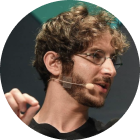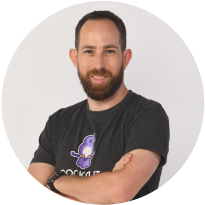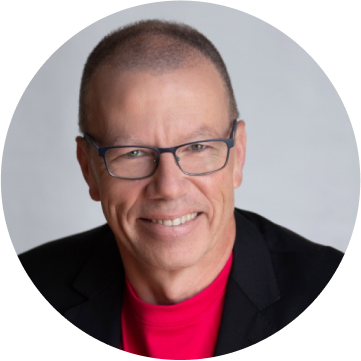1. What is a daily habit you love doing?
I prefer waking up early and giving myself a couple of hours before work starts. The exact routine varies but I usually cover 3-4 newspapers, exercise or meditate depending on the day, go over my schedule and read a chapter of whatever book I'm reading at that time. By the time everyone else starts waking up, I finish off with breakfast and feel as if I already conquered the day. I started with this routine when I realized it was what I loved about my weekends, so paraphrasing off Heinrich Böll's fisherman's tale, I realized there is no use in waiting to do what I love every day.
2. What piece of advice would you give yourself when you started? What advice would you ignore?
If I could school my younger self on anything, it would have been about listening more. Part of my experience being a young, first time entrepreneur, is that I always felt as if I had to prove myself. I had to prove myself to my clients, investors, co-founders, and team members. The need to prove myself was not inherently bad, but I mistook leadership and courage with always having to think about solutions on my own because I thought (maybe rightfully so) that Tailor Brands is so different from the companies that other people drew their experience from. My situation was unique, but my problems didn't have to be.
Sometimes done is better than perfect, and sometimes, not always, having some experience beats having none. The reason I say sometimes, is that life is all about balance. Smart people will give you contradicting recommendations, and it's up to you to decide not which you take, but what you take of each.
One of the pieces of advice that proved untrue in my situation was "Never work with friends". I started Tailor Brands with my best friends, Tom Lahat and Nadav Shatz, and some of our best friends work with us every day. Working with friends definitely has challenges, but perks definitely outweigh them.
★Check out how Gad Maor, Founder of Storemaven also embraces his family and friends in the workplace.
3. What piece of content (book/podcast/Ted Talk) is your favorite or has influenced your life?
Not my favorite, but definitely one of the books that influenced my work the most – “The Design of Everyday Things” by Don Norman. The book was part of my College curriculum (I started College at Parsons School For Design before transferring to Columbia University) and it was the first lesson I ever got on how products should work.
The book’s underlining theory is that even the smartest among us can feel dumb as we fail to figure out whether to push, pull, or slide a door. If a user doesn't understand how to use something, it's not his fault, but the products.
Tailor Brands is full of the best design, engineering, and product talent. We love to experiment, we love trying new things, and we are always on top of the latest design trends. In the past, we looked at these traits as pure strengths. We thought whoever can't understand our design shouldn't be using it. Our product worked amazing for some, and not at all for others. As Tailor Brands grew that had to change. We had to use our knowledge, not to show off, but to simplify actions that were otherwise impossible. That approach paid off as we just crossed over 18,000,000 users worldwide.
4. What is the most valuable investment (time, money or energy etc.) that you’ve ever made?
In the context of these questions, I'll have to say the answer is my relationship with my Co-Founders. Tom and I met during high school and I met Nadav through Tom during our time in New York. We started working together because each of us admired the talents the others had. I led the business side, Nadav was a tech genius, and Tom had a gift for design. In order to create something great, we had to find the right path, that laid somewhere in the middle, between our three gifts.
But as often happens with co-founders, we spent much of our early days fighting, each of us pulling too hard into one direction. We had many highs and many lows. When we first started Tailor Brands, Nadav and myself couldn't end an argument without one of us bursting out of the room. We actually had to get outside help at some point and hired an organizational consultant to help us bridge the gaps between us.
There were many points in which the easiest and most logical solution was to split up. But unlike many other co-founders, we managed to bridge the gaps. Today, they are not only my co-founders but also my best friends and brothers. Starting a business is a tiring task, so having people by my side that always have my back was one of the best investments I ever made.
5. Is there a quote, mantra or message you live your life by and that you resonate with? It can be someone else's as well.
My number one mantra is "Try. Fail. Learn. Repeat." It's a rule I live by and I keep reminding myself whenever I need to make a hard choice without any obvious answers. It keeps me grounded and reminds me that not knowing all of the answers shouldn't stop you from going forward. That falling down and getting back up is part of the process.
I was a very indecisive teenager. I dreaded making choices without having a complete understanding of a situation. This could be a good thing when you actually have the option of obtaining more data. In other situations, situations where I couldn’t have full control, I could linger on for days, thinking about the right course of action.
When I was about 15 my mother gave me a news clipping with a quote by James Baldwin; “Not everything that is faced can be changed, but nothing can be changed until it is faced”. 15 years and 1 startup later I can say that I know how to fall down and get back up, by meeting every challenge head-on.
6. What helps you stay motivated on good and hard days?
Gratitude. I get to have a job. (Period intended) I love. With people I love working with. I have a wife I love dearly and a family that accepts me with all my faults. I am truly lucky. But when I wake up and feel not as fortunate because work is hard, or I have a fight with one of these people I usually love, I try to remind myself that the whole is greater than the sum of its parts; And each one of these things individually makes me really fortunate.
Life is about perspective. An old friend (who had to flee Iran and ended up going to some of the most elite schools in the States) told me that if we take 90% of people living in any western country and compare them with the entire world, they would still land somewhere in the top percentile of fortune. I am not sure he was statistically accurate, but broadly speaking the majority of us can be extremely lucky depending on how we choose to look at it.
7. What are you passionate about other than managing your own company?
I am absolutely passionate about poetry, and writing in general. Both my parents were journalists, and my mother is a journalist and author still. Growing up, my passion for writing started out mostly as a way to prove my worthiness to them. When I was 16 I got my first writing job as a reporter for Time Out magazine. I was insanely proud, despite the fact that due to my age they made me write under an alias. I served as a military correspondent but ended up going in different professional routes later on.
Still, writing has always been my getaway. Whenever I feel confused, whenever I need to make sense of something, I write. At one point, when I felt a bit unconnected, I dared myself to write a page every day and paste it to my bedroom wall. I ended up writing 87 poems. We can have the most profound thoughts, but if we can not articulate them, they will be wasted.
8. What have you recently thrown away or released from your life that made a positive impact and why?
Being envious of others. For a long time, I've been very critical of other people. I felt, subconsciously, that by downsizing their success I'll heighten mine. I was always trying to be the best, at everything. As I grew older, and more of my friends became successful in their own ways, I realized that their success is pushing me to be better, not downsizing my own success. The process only really matured in the last year or so, but I think I finally managed to internalize the fact that the race I am in is truly only with myself.
9. Share a failure you have experienced and what you learned from it.
I make mistakes every day, but I keep reminding myself that I am the sum of all good choices and bad choices I made, and if I'm happy with who I am, I shouldn't be afraid of making mistakes and learning how to be better.
However, there was one repetitive mistake it took me a long time to learn from. Throughout Tailor Brands' life cycle I often pushed for getting fast results. My itching to succeed jeopardized long term aspirations with shortsighted gains. This was all done under a rational justification; there were times when we were fighting for our company's life every day, and if we could not figure out a way to see tomorrow there was no real rationale for hypothesizing about the next year. However, in hindsight, I could have balanced these needs much more, and accelerate our growth faster. I learned I should always keep an eye on the next year, even if tomorrow is uncertain.
10. If you could have anyone in the world answer these questions who would it be and why?
If I wouldn't think it would downsize our odds of hiring, I would probably say I’d love to get any person joining the team at Tailor Brands to answer these. It sure beats asking them what they love doing in their spare time.





